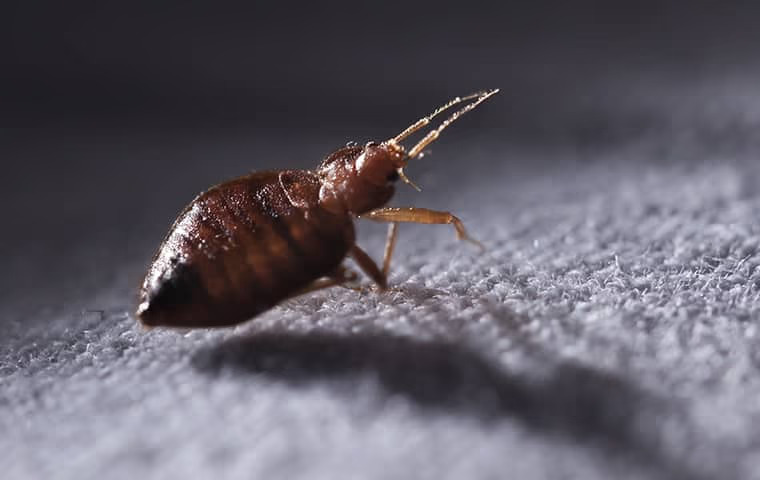Leading Kings Cincinnati Pest Control Services: Exterminator Expertise
Leading Kings Cincinnati Pest Control Services: Exterminator Expertise
Blog Article
Kinds of Insect Control: Which Technique Is Right for Your Infestation?
When confronted with an insect problem, the choice of an ideal method for pest control is essential in successfully managing the scenario. From chemical treatments to organic remedies, there exists a variety of strategies that can be utilized to resolve different kinds of bugs. Each method comes with its own set of considerations and benefits, making the decision-making process a nuanced one. Comprehending the nuances of each strategy and examining their compatibility with the certain insect infestation handy is important for achieving lasting success in pest monitoring. By exploring the various kinds of bug control approaches readily available, people can make educated decisions customized to their one-of-a-kind situations, making sure an extra efficient and lasting outcome in bug removal.
Chemical Bug Control
Chemical insect control entails making use of synthetic or naturally acquired chemicals to handle and eradicate pest populations properly. This method is typically made use of in farming, forestry, and household setups to fight a broad array of parasites, including pests, weeds, and rodents. Using chemical pesticides can provide quick and targeted options to pest infestations, making it a prominent choice for several individuals and businesses.
Among the crucial advantages of chemical bug control is its ability to quickly remove pests, minimizing the risk of damage to crops, home, and human health and wellness. By utilizing specific chemicals that target specific parasites, this technique can effectively regulate infestations while lessening injury to beneficial microorganisms and the setting when used properly.
Nonetheless, making use of chemical parasite control also elevates issues regarding prospective damaging impacts on non-target species, water sources, and human wellness. It is vital to follow safety guidelines, apply chemicals properly, and consider alternative bug control methods to minimize these threats and guarantee lasting insect administration methods.
Organic Insect Control
Biological bug control, also referred to as biocontrol, uses living organisms to handle and minimize parasite populaces naturally. This approach takes advantage of the power of nature to manage pests without the demand for synthetic chemicals. Biocontrol can include the introduction of natural adversaries of the pest varieties, such as microorganisms, parasites, or predators, to suppress pest populaces. By making use of the parasite's all-natural predators or pathogens, organic insect control uses a sustainable and eco pleasant option to pest management.

Mechanical Parasite Control
Utilizing hands-on and physical methods to manage parasite populations, mechanical pest control supplies a different method that does not rely upon using living microorganisms or artificial chemicals. This technique includes the usage of barriers, traps, or various other gadgets to literally prevent or remove insects. By blocking insect entry factors or establishing catches to catch them, mechanical insect control can effectively minimize invasions without introducing chemicals into the atmosphere.
One usual instance of mechanical insect control is the use of mesh displays on doors and home windows to stop insects from entering buildings. This simple yet effective approach acts as a physical obstacle, maintaining parasites out while allowing for correct ventilation. Additionally, gadgets like mousetraps, fly swatters, and ultrasonic repellents drop under the mechanical insect control category.
While mechanical parasite control methods can be labor-intensive and require normal surveillance and upkeep, they offer a sustainable and ecologically pleasant solution for taking care of insect problems. By combining various mechanical methods, homeowner can develop a comprehensive insect control approach that decreases reliance on chemical pesticides.
Physical Bug Control

Some typical physical parasite control methods consist of making use of obstacles such as webs or screens to avoid insect entrance, traps to record and get rid of bugs, and hand-picking to physically eliminate pests from plants or structures. Furthermore, techniques like heat treatments can be the original source used to manage pests like bed bugs by raising the temperature to levels that are lethal to the insects.
Physical pest control is specifically beneficial in integrated bug administration (IPM) methods, where multiple parasite control techniques are integrated for reliable pest monitoring while minimizing using chemicals. By making use of physical pest control methods, individuals can successfully attend to bug infestations with very little environmental impact.
Integrated Insect Administration
When executing physical parasite control methods as part of pest administration strategies, Integrated Parasite Administration (IPM) becomes a comprehensive technique that leverages different methods to successfully manage YOURURL.com pest populations. IPM focuses on lasting prevention of parasites through a mix of organic, cultural, physical, and chemical tools tailored to particular insect problems. By integrating several control tactics, IPM aims to minimize the threats connected with insects while likewise decreasing reliance on chemical services.
One secret aspect of IPM is the focus on tracking and assessing pest populations to figure out one of the most suitable control methods. This aggressive method permits early intervention and targeted approaches, causing a lot more effective pest monitoring. Additionally, IPM advertises eco pleasant methods by prioritizing non-chemical control approaches and only using pesticides as a last resource.
Final Thought

By making use of the bug's natural predators or microorganisms, organic insect control offers a ecologically pleasant and sustainable service to pest monitoring. - Kings cincinnati pest control
Making use of physical and manual approaches to manage bug populaces, mechanical pest control uses an alternative approach that Go Here does not count on the usage of living microorganisms or synthetic chemicals.An effective strategy to taking care of pest populations without counting on chemical or organic techniques involves the use of physical insect control methods.When implementing physical bug control techniques as component of bug management approaches, Integrated Parasite Management (IPM) arises as a thorough method that leverages numerous methods to effectively regulate pest populations. Chemical pest control entails the usage of pesticides, organic insect control uses natural predators, mechanical pest control entails physical obstacles, physical parasite control consists of capturing or getting rid of insects, and incorporated insect monitoring combines several approaches for an all natural technique to pest control.
Report this page